On Oct. 24, John Legend joined Georgetown’s Institute of Politics and Public Service (GU Politics) and discussed how he uses his musical platform to advocate for social change and racial justice.
The event was part of GU Politics’ “Know Your Power” speaker series, which brings leaders in media, politics and public service to campus to discuss using their platform to impact social change. Legend sat down with GU Politics Executive Director Mo Elleithee, who kicked off the conversation by reading from an essay Legend wrote when he was 15.
“I envision a successful musical career that will allow me to obtain high visibility in the community,” Legend wrote in his essay. “This, in turn, will put me in a position of great influence, which I will utilize in order to be an advocate for the advancement of Blacks in America.”
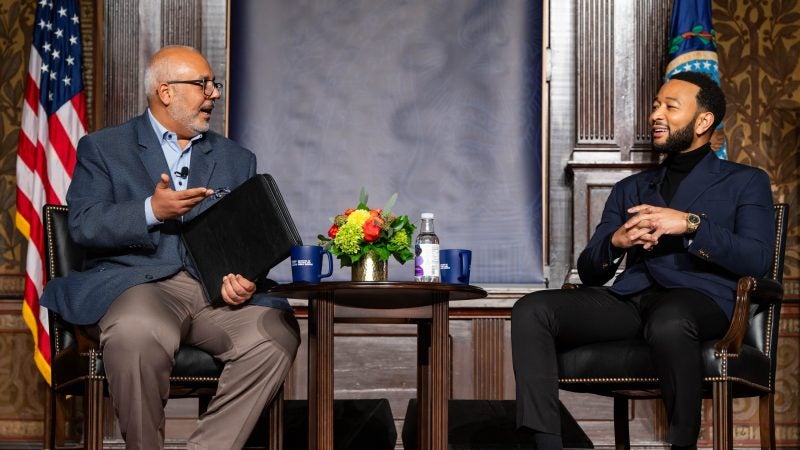
Legend shared how he was especially interested in civil rights history and activism from a young age.
“I was very attracted to the stories of people like Dr. King and Rosa Parks and Fannie Lou Hamer and all these different organizers and activists who fought so that we could finally achieve equality in this country.”
The artist also had role models like Harry Belafonte and Nina Simone, who used their music to support protests, fund events and bail activists out of jail, he said. These figures inspired him to make music and use his platform to fight for the interests of Black Americans.
Legend, a critically acclaimed musician, discussed how his song, “Glory,” made for the movie Selma, honored protestors in 2014 following the shooting of Michael Brown in Ferguson, Missouri.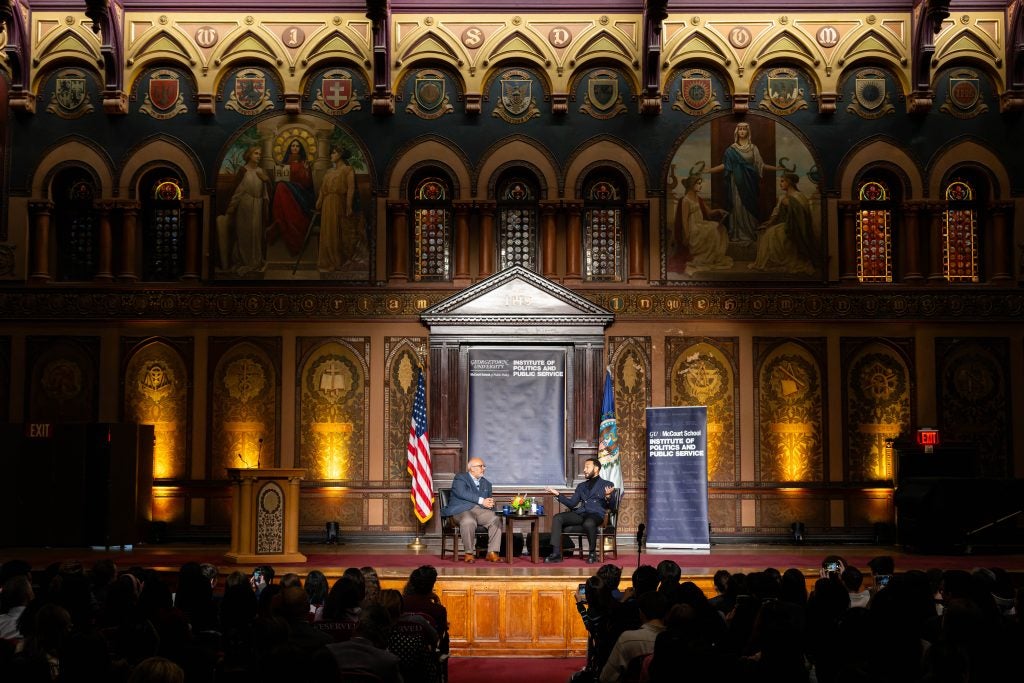
“All those protesters that encouraged us and inspired us to write this song and to include the modern-day movement for Black lives in the song, they started marching with our song,” Legend said. “There was this symbiosis between what they were doing that inspired us and then what we created that also inspired them.”
Legend also dove into his advocacy beyond the music, including organizations he has started. In 2014, he founded Free America, an organization focused on ending mass incarceration in the U.S.
The artist said he is inspired to advocate for issues after reading about them, noting the influence The New Jim Crow had on his advocacy for a more equitable criminal legal system.
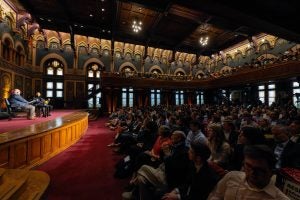
Legend also founded HUMANLEVEL in 2020, an initiative to address systemic racism through local government efforts.
“Sometimes all of us forget how important our local officials are in determining our futures and the conditions that we live in,” Legend said.
After his discussion with Elleithee, Legend answered students’ questions about the upcoming presidential election, staying motivated to continue fighting for change and mitigating political polarization.
The artist encouraged students to use their voices and votes to make a difference. When asked how those who cannot vote can participate in this election, Legend highlighted the importance of volunteer opportunities such as knocking on doors and phone banking.
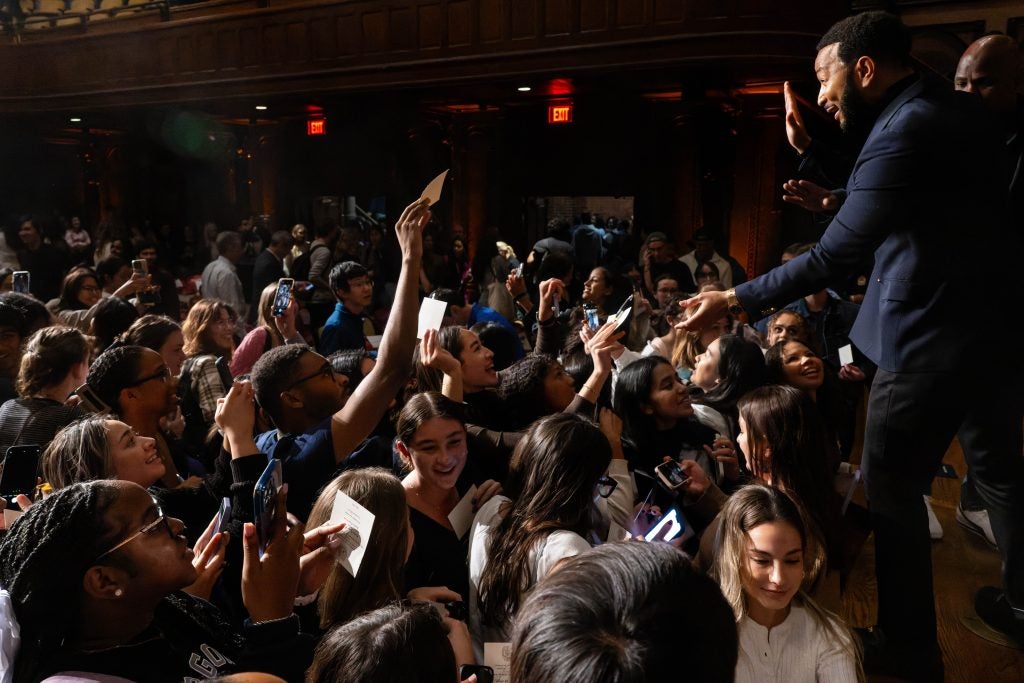
Frances Ovadje (C’26), a government student from Atlanta, Georgia, attended the event and asked Legend how he recommends people set boundaries and care for themselves when they don’t see the change they want.
“Take time for yourself, for your mental health and your physical health so you don’t get worn down by the fight and by all the bad news out there,” Legend responded. “For all the bad news out there, there’s a lot of good news and I think we need to celebrate the wins as well.”
Ovadje has attended multiple GU Politics speaker events and values the ability to have “more intimate conversations” with influential people like Legend.
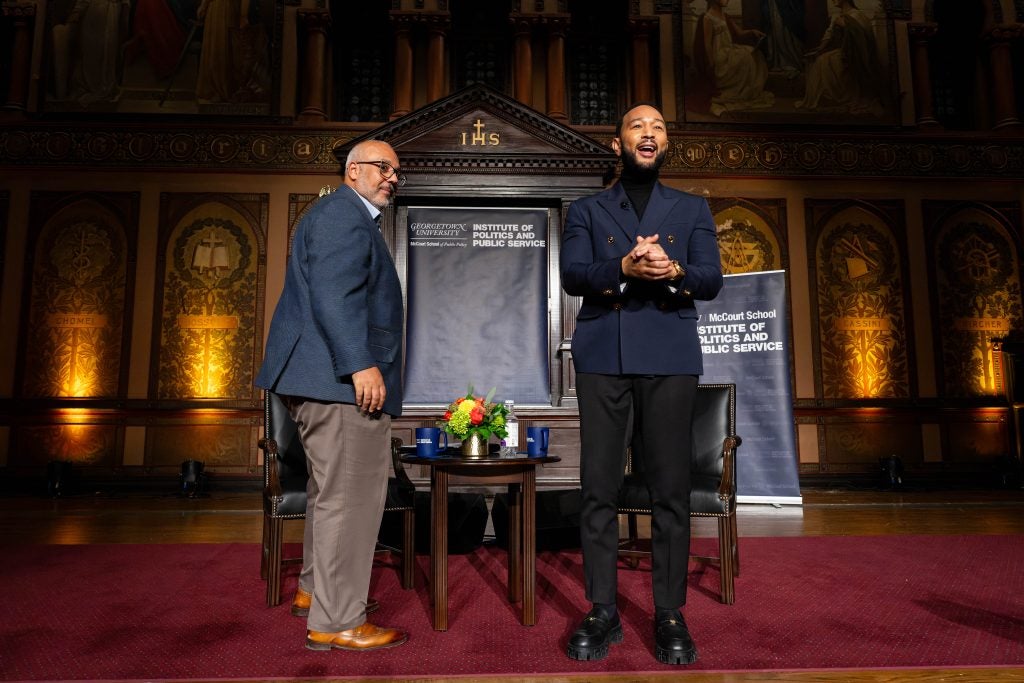
“I’m glad I was able to ask him a question because I think a lot of the time, the aspect of mental health is not really talked about in activism,” she said. “It’s a really cool opportunity that Georgetown has for students.”
At the end of the conversation, Elleithee asked Legend what advice he has for “ambitious, young changemakers” like Georgetown students who are still figuring out how to use their voices.
The artist emphasized the importance of openness and empathy. He also encouraged students to widen their advocacy horizons beyond the federal level in DC.
“The temptation may be to only focus on what’s happening here in Washington DC,” Legend said, “But just remember there are so many ways for you to make a difference and to get the wins we want all over the countries and all over the world in communities who need you.”





